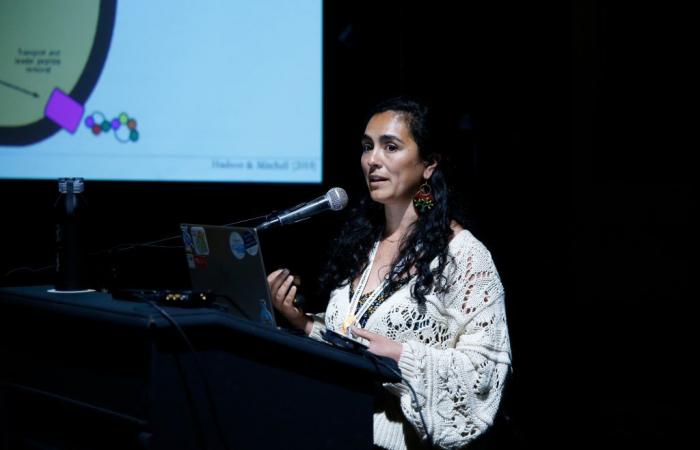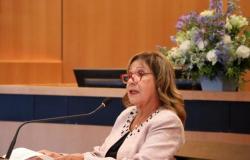
- The post-doctoral researcher studies a new bacterial genus discovered on Las Torpederas Beach that could lead to the creation of antibiotics for human health. So far, no similar bacteria have been found in previous studies.
- Is about Spiractinospora alimapuensis and their findings will be presented at the XXI Valparaíso Microbiology Colloquia this Thursday, June 27 at 12:15 p.m. at the UTFSM.
The BioGEM Millennium Nucleus invites you to participate in the XXI Valparaíso Microbiology Colloquiums that will be held this Thursday, June 27 at 12:15 p.m. at the Federico Santa María Technical University. This instance is coordinated by doctors Michael Seeger (director of the BioGEM Millennium Nucleus, UTFSM), Beatriz Cámara (BioGEM, UTFSM), Verónica Molina (UPLA) and Carolina Yañez (PUCV). On this occasion, Dr. Fernanda Claverías, doctor of Sciences with a mention in Microbiology and researcher at the “Dr. Daniel Alkalay Lowitt ”will present her research:“ From the Deep Sea of Valparaíso: Exploration of the New Bacterial Genus Spiractinospora alimapuensis and its Potential in the Production of Bioactive Peptides”.
Dr. Fernanda Claverías is a Civil Environmental Engineer from the Federico Santa María Technical University, a doctor of Science with a mention in Microbiology and a researcher at the “Dr. “Daniel Alkalay Lowitt.” She has been developing research work on the group of bacteria “Actinomycetotas” for several years and recently discovered a new group of bacteria, called: “S. alimapuensis”. He is currently in charge of genomically characterizing this bacterial group to identify properties that could lead to the development of new antibiotics with applications in human health.
Currently, science faces the challenge of creating new antibiotics that solve the resistance that has been generated to them by many microorganisms. In that sense, his work with the bacteria S. alimapuensis, consists of: “the investigation of a new marine bacteria that we isolated from Playa Ancha, which we call Spiractinospora alimapuensis, in honor of Valparaíso, the man that the native peoples placed on the coast. This new genus and species belongs to the Nocardiopsidaceae family, which is known because many of its species are extremist, coming from environments that humans consider extreme, such as environments of high salinity or alkalinity. Specifically, this bacteria is halotolerant, tolerating high concentrations of salinity. And it is alkalophilic, that is, it grows best in alkaline pH conditions. In addition, some bioactive natural compounds from the Nocardiopsidaceae family have been discovered,” explained Dr. Fernanda Claverías.
“The objective of this project is to explore and characterize products that this bacterium could produce, which are called ribosolmanently synthesized and post-translationally modified peptides (RiPPs). These peptides are of great interest due to their pharmacological potential, especially due to their antibiotic potential and other possible activities that we could find and that we want to identify. In addition, we investigate the taxonomic relationships within the family and we want to better understand the evolution of the genes responsible for the production of these bioactive peptides,” he specified.
One of the elements that is being investigated regarding this bacteria is its antibacterial or antitumor potential, as Dr. Fernanda Claverías explains: “we have discovered that S. alimapuensis It has antibacterial power, since in preliminary studies we saw the ability to inhibit the growth of clinically relevant pathogens, including Gram-positive bacteria such as Listeria monocytogenes (cause of listeriosis) and Staphylococcus aureus (responsible for skin infections, pneumonia or endocarditis) and Gram-negative bacteria such as Escherichia coli (diseases of the large intestine)”.
The XXI Valparaíso Microbiology Colloquiums are open to the public in hybrid mode and do not require prior registration. They will be held in person in Room M301 of the M building of the Federico Santa María Technical University, Valparaíso headquarters. To participate online, a zoom link will be available in the activities section of the website www.biogemchile.cl.





